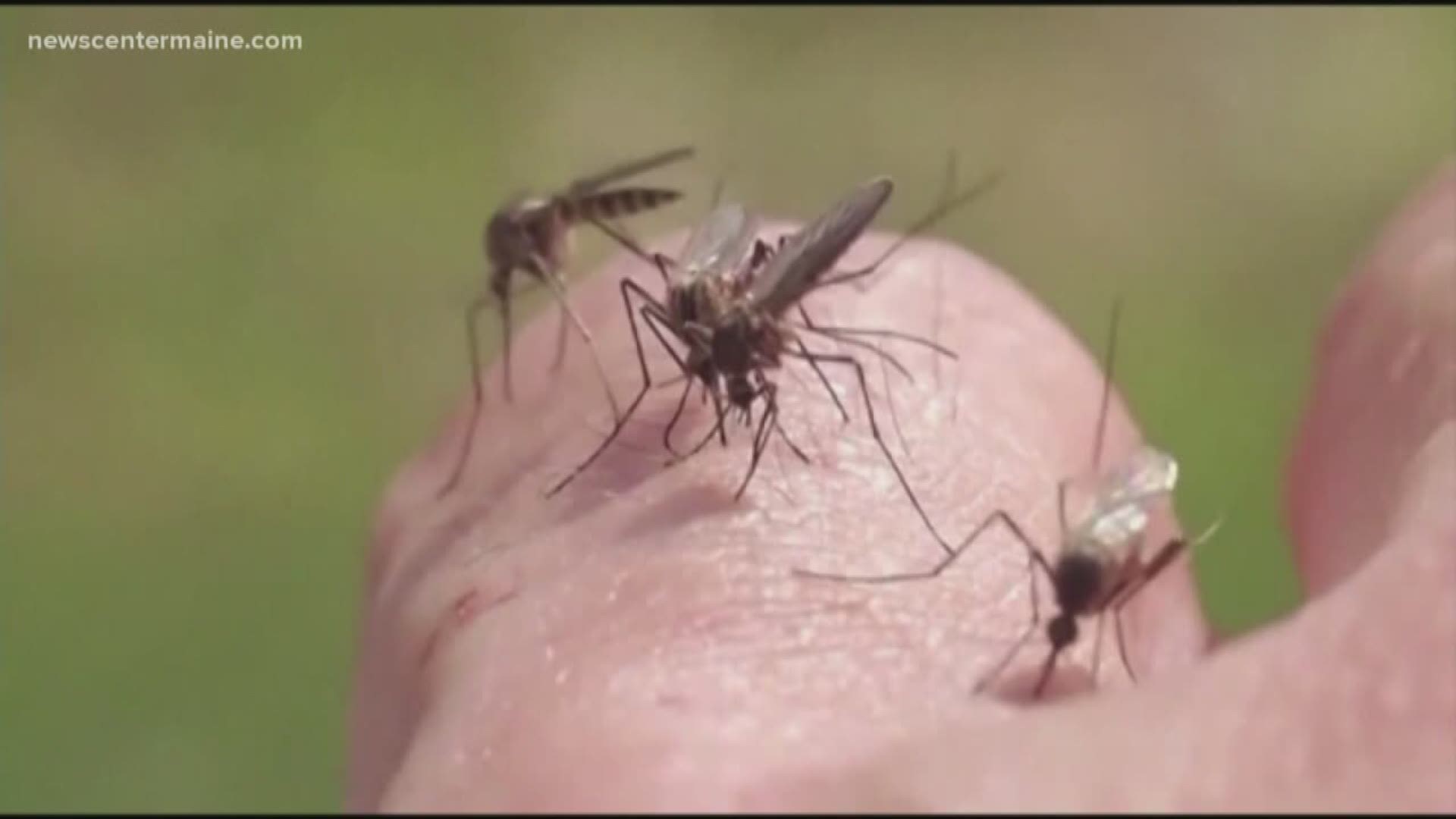LEBANON, Maine — A batch of mosquitoes collected in York County has tested positive for EEE virus, state public health officials announced Tuesday.
Maine's Center for Disease Control and Prevention said the insects were gathered Sept. 6 in Lebanon, Maine.
"This test confirms that mosquitoes carrying this potentially fatal virus are still active in Maine," said Maine CDC's director. "We urge residents and visitors to continue to take steps to protect themselves from mosquito bites."
Last month, a horse in York County was euthanized after contracting EEE.
Maine CDC says EEE is transmitted through the bite of an infected mosquito. It cannot be transmitted from human to human or animal to human.
The public health agency advises minimizing outdoor activity from dusk to dawn, when mosquitoes are most active. If outdoor activity is unavoidable, take precautions to prevent mosquito bites, including:
- Wear protective clothing: long-sleeved shirts, long pants, and long socks
- Use an EPA-approved repellent
- For use on skin: DEET, Picaridin, IR3535, Oil of Lemon Eucalyptus
- For use on gear and clothing: Permethrin
- Take steps to control mosquitoes around your property by emptying artificial sources of standing water, fixing holes in screens, and working with a pesticide control applicator.
The risk of mosquito-transmitted diseases such as EEE and West Nile virus (WNV) usually increases through the late summer and early fall. Mosquitoes are active until the second hard frost, the Maine CDC says.
There have been no confirmed cases of EEE or WNV in humans in Maine this year. The last case of EEE involving a human in Maine was in 2015.
Human infection with EEE virus can cause serious illness affecting the brain. Some persons infected with EEE have no obvious symptoms. In those who do develop illness, initial symptoms may include fever, headache, weakness, and body and muscle pain. Symptoms typically begin four to 10 days after a bite from an infected mosquito, and last one to two weeks. In more serious cases, the disease may progress to swelling of the brain, neck stiffness, confusion, seizures, and coma. Approximately one in every three individuals who are infected with EEE die and many survivors experience serious and lasting health problems. Individuals with symptoms suggestive of EEE infection should contact their physician immediately.
No human vaccine against EEE or WNV infection is available, according to Maine CDC. There is no specific antiviral treatment for EEE or WNV infections. Preventing mosquito bites is the best protection, it says.


